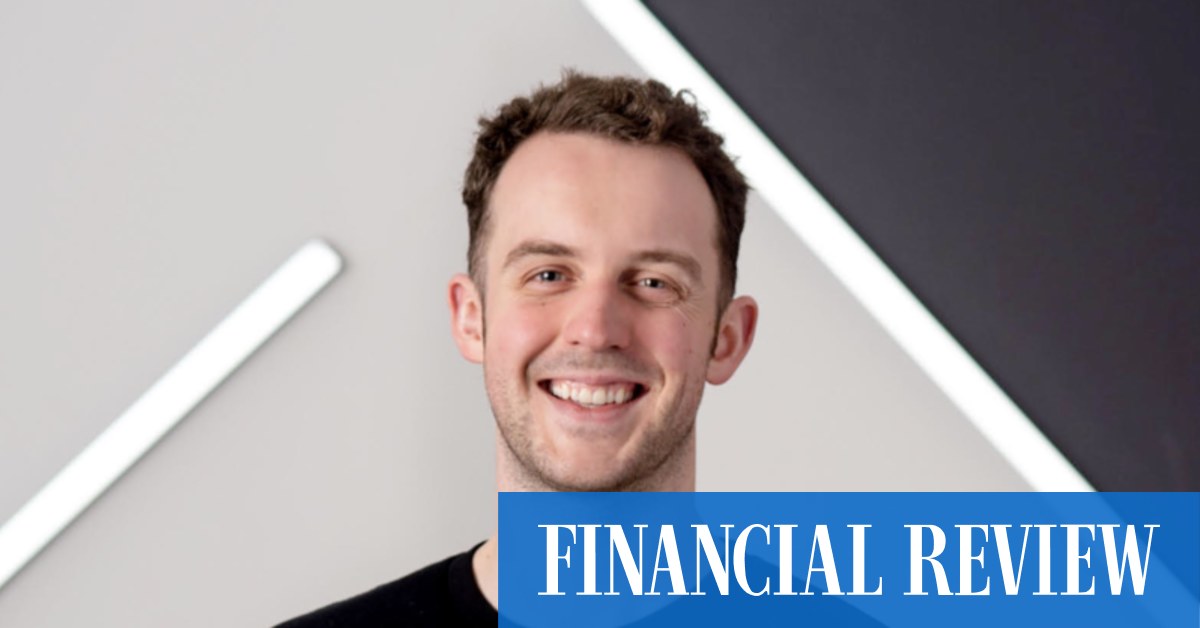“That really forced us to focus on developing a product that people wanted to use, rather than papering over it with a bull market and incentives and crazy token prices. That focus, I think, on building a product that people actually wanted to use was imperative for us developing anything good.”
In fact, he reckons that if the company had raised the $280 million that it did in March at the early stages of its development it wouldn’t have been good.
A lot of ground to claw back
“We had no idea how to spend that money. When we raised $2.5 million (in 2018) you have to think incredibly efficiently. What is the priority today?
“I actually think having too much money can be harmful to the psyche of building something because you tend to view it as, I have to spend this rather than what I need to build. Or who do I need to hire in order to accomplish what I want?”
The Ferguson brothers debuted on the Financial Review Rich List in May with wealth estimated at a combined $1.01 billion.
Since then, crypto markets have tumbled before a rebound last month. But there’s a lot of ground to claw back. Ether, the currency tied to ethereum, which Immutable builds its businesses upon, is down about 50 per cent.
Ferguson concedes the downturn is hurting crypto companies. Even Immutable has let some people go within its gaming operations. Ferguson wouldn’t comment on the cuts.
But he is busily hiring to build the broader business, confident Immutable is building products, including its Immutable X platform, that will find demand as more of the world shifts to owning and trading digital assets, or non-fungible tokens (NFTs).

Immutable co-founder Robbie Ferguson is doubling down on crypto. Louie Douvis
“Our thesis is that all forms of unique value in the world will eventually be tokenized,” he says.
“And they will be tokenized via the data structure of an NFT. So, in 10 years, we expect the vast majority of industries with unique value, whether it is real estate and trading houses, or whether it is the trillion dollars’ worth of T-bills or term deposits that are outstanding liabilities today, to be tokenised and transformed into NFTs.
“The technology in the platform that we’re building for games is precisely what is needed to allow hundreds of millions of homes to be tokenised, or pieces of real property and IP, like music royalties.”
The company’s genesis was in video games called Etherbots and Gods Unchained, where players could buy and sell items within the game.
Obsessed with fantasy
But as demand for their games, and to own items within them, surged, so too did the fees to keep building it on the blockchain.
So, they set about building a platform that would allow gamers and other businesses wanting to market NFTs to operate without incurring huge costs, called gas fees.
Ferguson confesses he was a massive nerd who was obsessed with fantasy fiction as a kid.
He was dux of his year at Knox Grammar, but even though he was punching above his weight academically, he and James would frustrate their parents by spending a lot of time playing video games.

Gods Unchained trading cards, of which there are more than 25 million in existence. The Ferguson brothers developed the popular game in 2018.
“We would play a tonne of video games,” Ferguson recalls. “I think I have a few thousand hours in League of Legendsa few thousand hours in runescape from when we were a bit younger. Anything with an in-game economy, I loved. I wasn’t particularly good at these games, by the way,” he tells the podcast.
“I do remember Mum being very frustrated with those, but I think that formed the basis of a lot of what we ended up building later on and understanding that these digital goods are actually really meaningful for kids.”
By the time he was in year 9, he was working with his brother on side projects. They became obsessed with developing digital products.
It was during his summer holidays at the end of 2017, after his second year studying law and computer science at University of Sydney, when one of their ideas was really paying off.
A game they’d built, Etherbots, went viral. It was making millions. Ferguson didn’t go back to university. They set up Immutable instead. For a time they worked all night from a co-working space.
“I remember the other half of the building was this photo box start-up that was building photo boxes for events. And they thought we were nuts. They came in on a Monday, and we were just sleeping under the desks, and we hadn’t left all weekend.”
